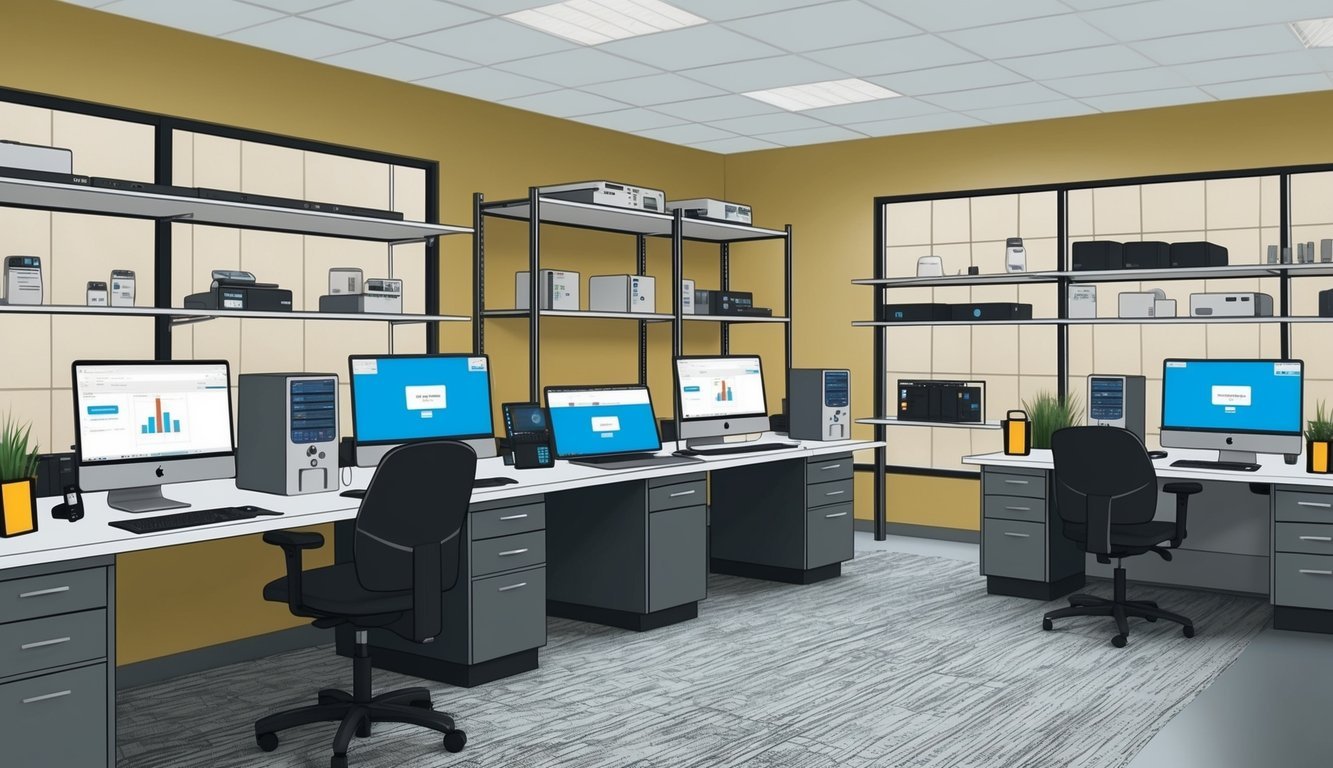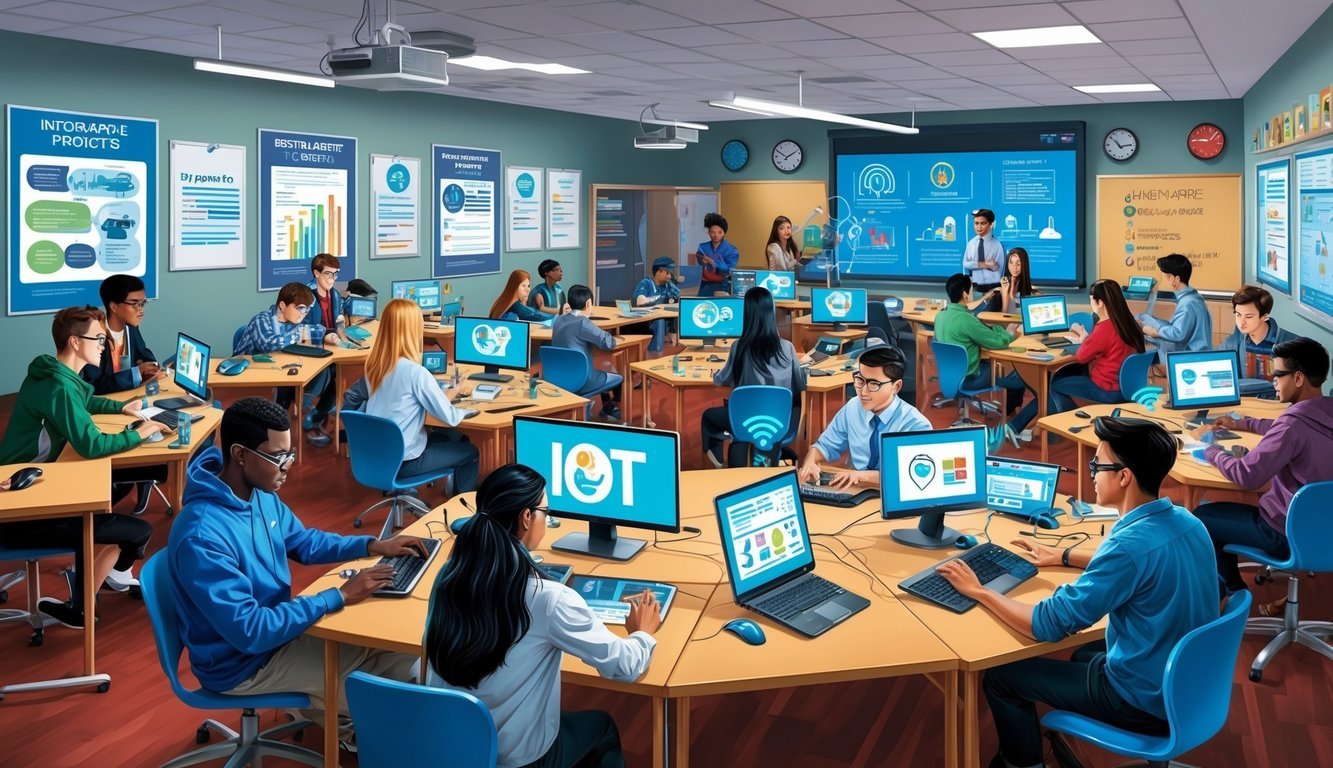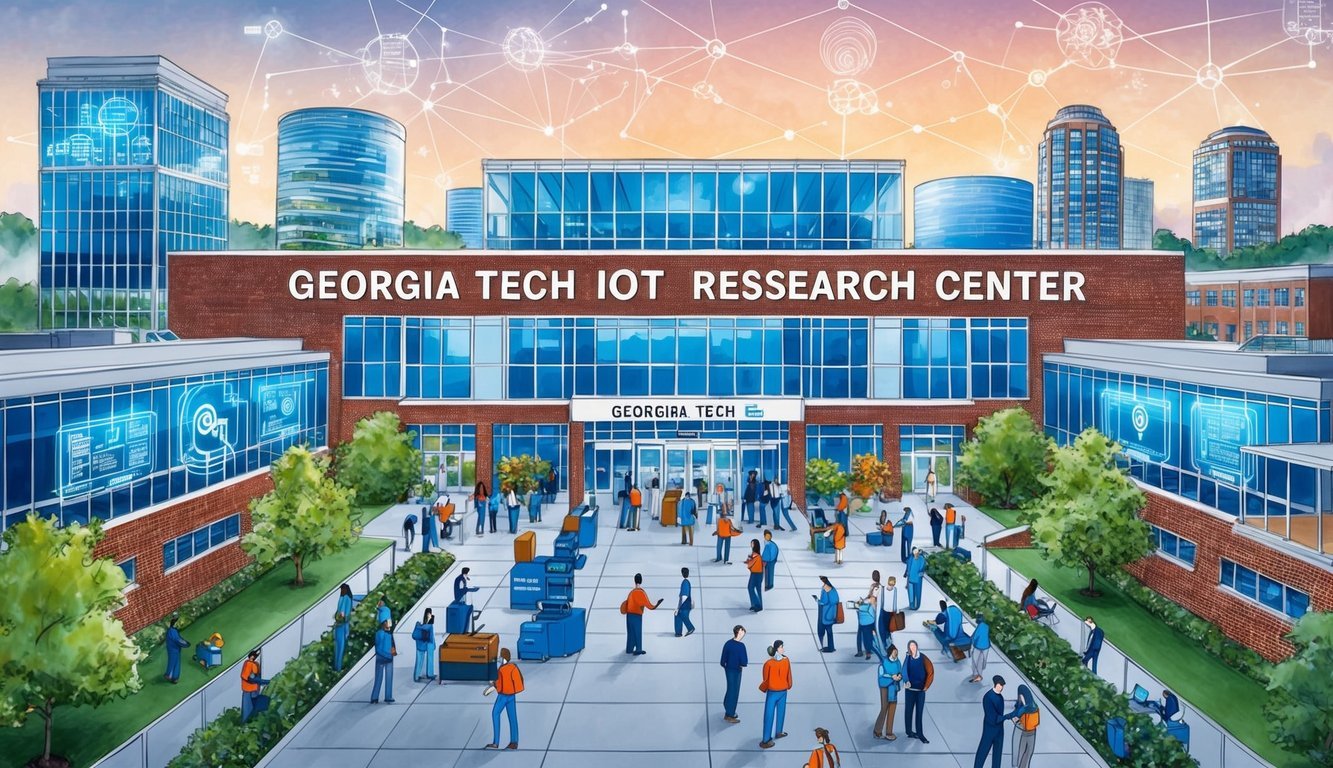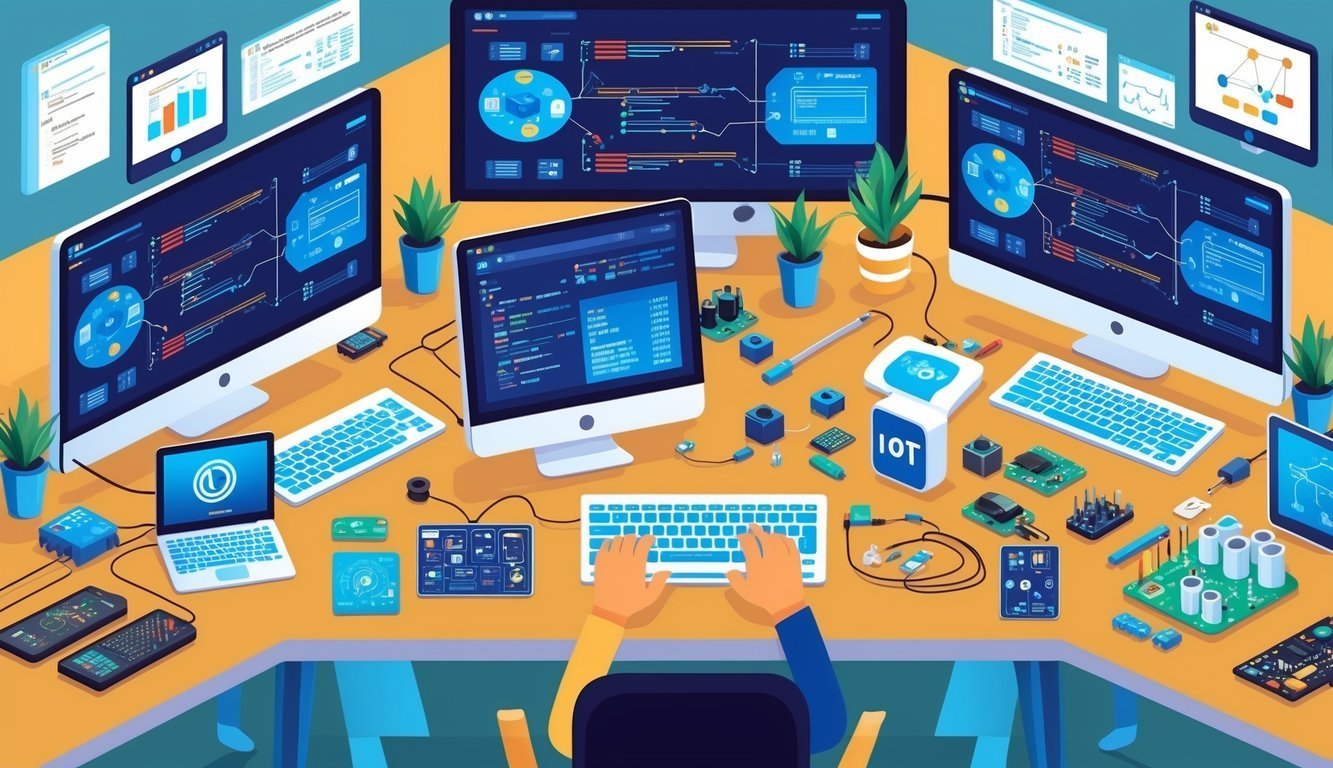Hey there! The Internet of Things (IoT) is seriously changing how we live and work.
Smart gadgets are popping up everywhere—from our cozy homes to bustling factories—making life smoother and more efficient.
Isn’t it cool how technology can make things easier for us?

If you’re itching to create your own smart devices, you’ll need the right tools. The best IoT development programs let you turn your brilliant ideas into reality. Whether you want cloud integration, real-time data analysis, or secure communication, these programs have got you covered.
Imagine bringing your IoT dreams to life!
1) Purdue University IoT Lab

If you’re eager to jump into the IoT world, Purdue University’s got a fantastic setup.
Their IoT lab is like a tech playground! It’s filled with hands-on opportunities around industrial control systems and smart manufacturing.
If you’re excited about Industry 4.0 and networking, you’re in for a treat.
If you’re looking for something a bit deeper, check out their Advanced IoT Design and Applications course.
It covers everything from device programming to the ins and outs of wireless networks.
Want to go all-in? Purdue even offers a full Master’s degree in IoT—and the best part? You can do it online! This program dives into everything from embedded systems to VLSI and wireless communications.
You won’t just be filling your head with theory; you’ll gain practical skills for the IoT-packed future.
2) Stanford IoT Program

They offer a handy Graduate Certificate in Internet of Things, aimed at engineers and tech enthusiasts who want to step up their game.
You’ll get a solid foundation in IoT tech, learning about applications, sensors, and embedded systems.
Plus, you’ll dive into networking and circuits.
Need a sneak peek? Their Introduction to Internet of Things short course is an excellent way to dip your toes in.
For a deeper exploration, try their full Introduction to IoT course, where you’ll not only learn the basics but also work on research assignments and a hands-on project.
With the IoT industry booming, you’ll be all set to ride this tech wave!
3) MIT IoT Intensive Workshop

If you really want to dive into IoT, MIT’s Industrial Internet of Things program is just the ticket! This workshop spans nine weeks and is perfect for tech folks ready to amp up their IoT skills.
You’ll get your hands dirty with cutting-edge IoT tech, tackling everything from basic sensors to advanced machine learning applications.
The real-world case studies included will show you how leading companies are leveraging IoT to tackle issues and improve their bottom line.
Don’t have nine weeks? Check out their shorter six-week IoT design and applications program.
It focuses on creating user-friendly IoT products and services.
Both programs are led by MIT experts, giving you access to the latest research and principles you can apply in your work.
4) UC Berkeley IoT Bootcamp

Their comprehensive course on foundations and applications of IoT is anything but ordinary!
This program mixes a bird’s eye view with all the nitty-gritty details you’ll need to understand IoT.
You’ll get to learn from industry pros who really know their stuff, building a robust understanding of IoT tech and how it’s used in the real world.
It’s not just theory, either—you’ll get to roll up your sleeves and work on hands-on projects that’ll make you job-ready.
From the technical aspects to the societal impacts of IoT, you’ll gain a well-rounded perspective.
If you have serious aspirations in IoT, this Berkeley program could be the perfect way to kickstart your career in this fast-growing field.
5) Harvard IoT Ventures
This is a golden opportunity if you’ve got an IoT idea you’re eager to develop.
Each year, hundreds of student-led projects jump into this program, with the 2021 Summer Venture Program launching an impressive 278 ventures! From healthcare to tech and social impact, you’ll be in great company.
Plus, if you’re still in high school, don’t sweat it—you can check out the Harvard Ventures-TECH Winter Fellowship, crafted just for you!
6) Georgia Tech IoT Research Center

It’s basically an IoT hub that brings together brilliant minds from various fields.
They run a variety of research programs covering everything from smart cities to healthcare IoT.
If you’re passionate about tech, you’re going to love their work.
CDAIT is not just about doing research; they’re on a mission to spread knowledge through reports and papers.
You’ll be learning from experts while interacting with the latest technology!
7) Texas A&M IoT Makerspace

You'll have access to tools like 3D printers and laser cutters to turn your concepts into reality, and there’s always staff around to lend a hand.
And of course, their College of Engineering is actively using IoT to make classrooms smarter, giving you a chance to test your projects in real-world settings.
Understanding IoT Development
It’s a mix of hardware, software, and networking that enables smart solutions across various industries. Think of sensors as the ears of your device, gathering information from the environment. Wireless technologies like Wi-Fi and cellular networks help send that data to the cloud. Those insights then circle back to users or devices. Sounds nifty, right? It’s crucial to keep that data safe as it zips around between devices and servers. IoT architecture typically includes layers for sensing, networking, and applications. Think about smart homes where you can control your lights and temperature right from your phone. Or factories that use IoT to keep track of inventory or fix machines before they break down. Farmers are using it for everything from precisely watering crops to monitoring animal health. Cool, huh?
Does it cover what you're interested in? If you’re keen on the nitty-gritty of major networks, then AWS IoT could be your jam. For smart home tech, Tuya IoT might be more your speed. Do you get to work on real projects? Some courses throw you right into building things right away. Are they folks who live and breathe IoT? Good teachers can make your learning experience enjoyable and practical. Does a role with a big company appeal to you? If so, check out Cisco IoT—perfect for corporate environments. Interested in sales? Then Salesforce IoT Cloud could be just what you’re looking for, blending IoT and customer insights. Certain jobs might favor specific IoT skills. A little job-seeking research could reveal what employers are after. You can always delve deeper later. The important thing is to take that leap and enjoy the world of IoT! Cloud computing is a game changer in maximizing IoT solutions—some platforms are free, while others offer unique strengths. These big players have powerful tools and services. Smaller platforms like ThingSpeak and Particle deserve a look too. You can reach this data anywhere, anytime, and it simplifies device management and updates. These platforms are perfect for beginners, offering essential features for free to help you kick off your IoT projects. Some target specific industries, while others provide more general tools. Pricing models also differ; some charge by device, while others base prices on data usage. You can customize them to fit your needs! ThingsBoard, for example, offers a community edition that’s great for learning and smaller projects. You can connect devices, process data, and build apps with ease. Plus, AWS integrates smoothly with other Amazon services, making it an appealing choice for heavyweight projects.Key Concepts in IoT
Role of IoT in Modern Technology
Choosing the Right IoT Program
Factors to Consider
Aligning with Career Goals
Frequently Asked Questions

What are the top IoT platforms to watch for in current times?
How does cloud computing enhance the capabilities of IoT solutions?
Can you list some free IoT platforms that developers can start with?
In what ways do different IoT platforms differ from each other?
What’s the buzz about open-source IoT platforms like ThingsBoard?
How does AWS feature in the IoT space, and why would a developer choose it?

